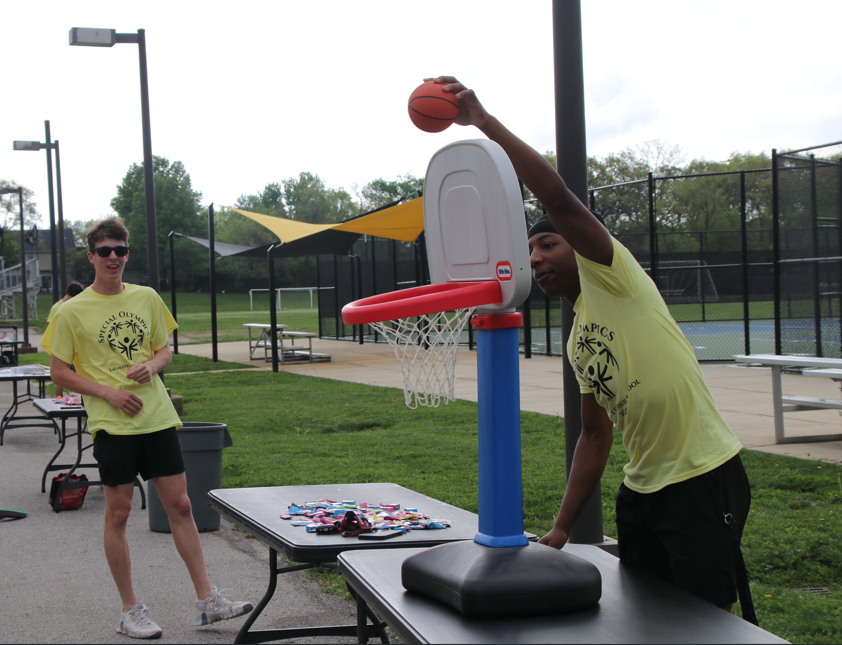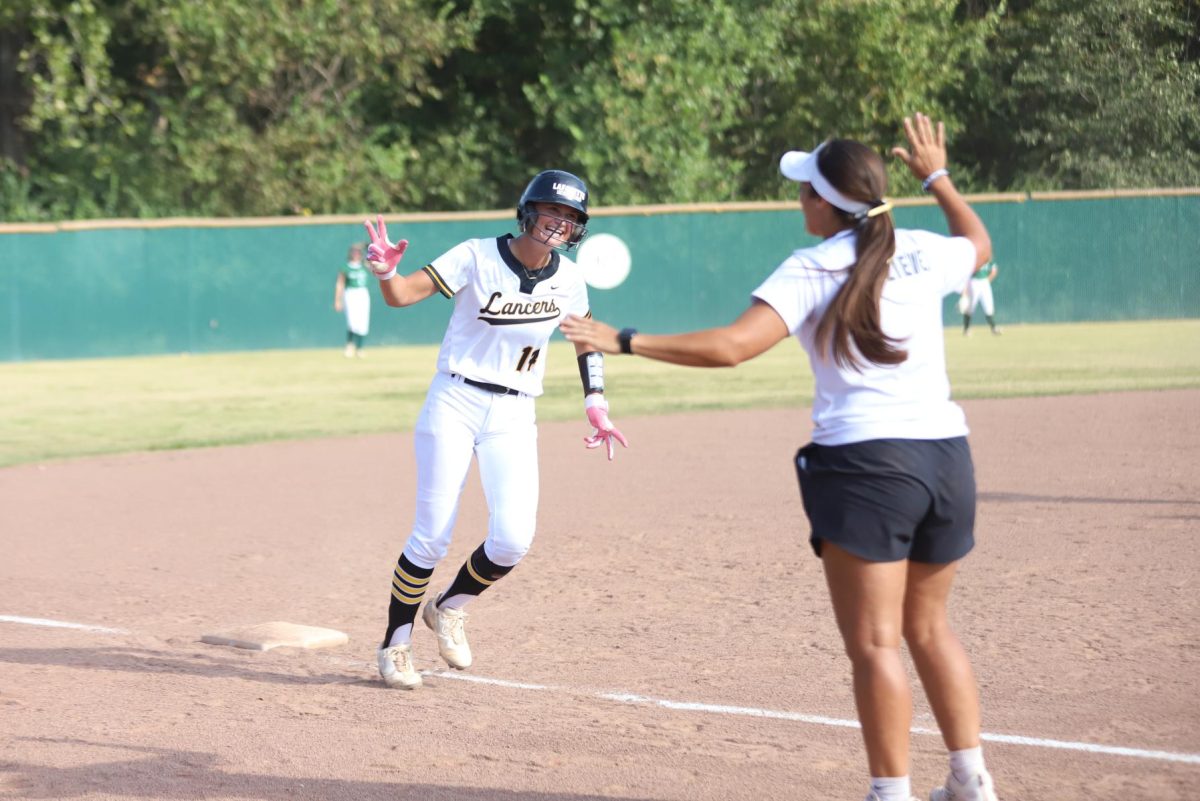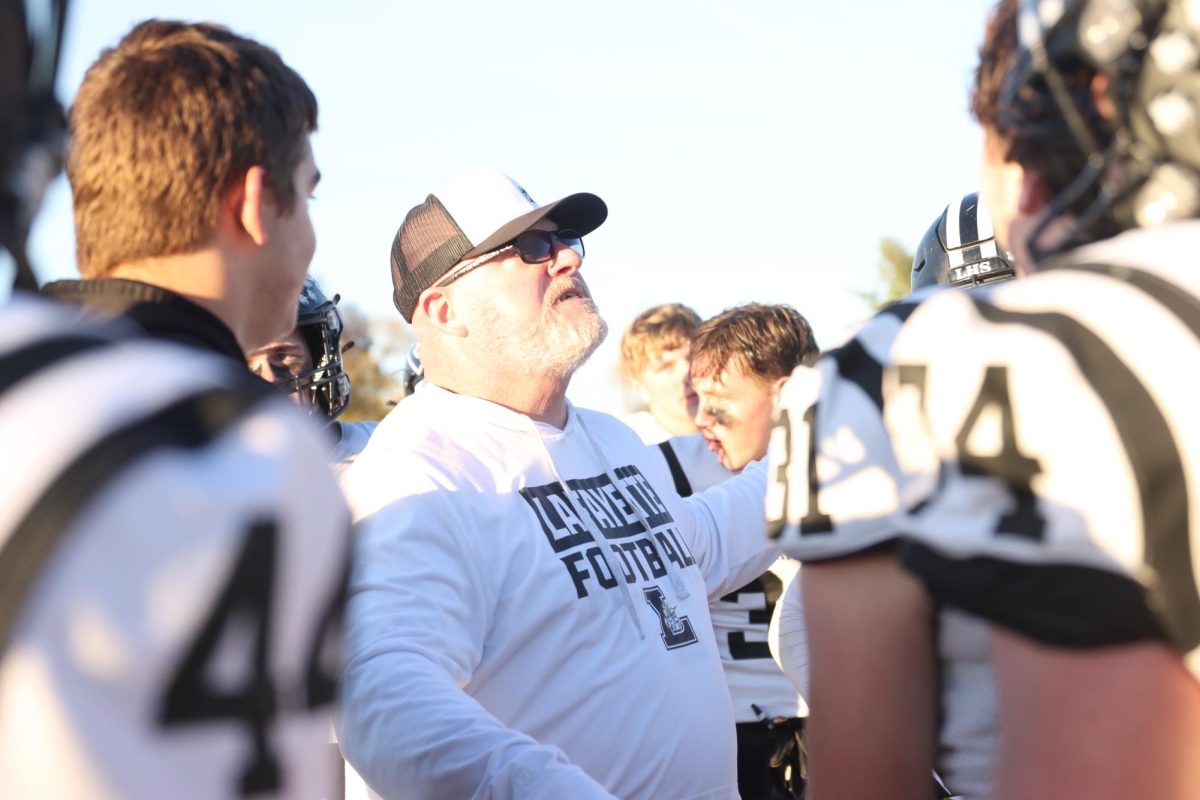High-risk students, families take precautions against COVID-19
In the hospital, Danna Stone holds a bottle of contrast she has to drink before getting scanned for cancer. Stone has been cancer-free since 2017.
April 14, 2020
*Name changed to protect identity.
While at home, many families are taking precautions in order to prevent the spreading of COVID-19, which rapidly transformed into a global pandemic. Those higher at risk include the elderly, people with underlying health conditions, those who are immunocompromised and people with serious heart conditions.
The Centers for Disease Control and Prevention (CDC) and the World Health Organization (WHO) have advised that at-risk people should practice social distancing, wash their hands and be careful outside. The state of Missouri has also issued a stay-at-home order in order to help to mitigate the spread of COVID-19.
At Lafayette, students with certain health conditions have been avoiding contact with their peers and taking severe precautions to stay healthy.
Steve* has asthma and received a heart transplant earlier in life. Individuals who have organ transplants are given drugs that suppress their immune system. People who are immunosuppressed are at a high risk of getting a severe infection should they catch COVID-19.
“My asthma is bad enough to kill me. The transplant hasn’t caused much trouble in the past, but my entire family except my mom has asthma,” Steve said.
Freshman Dani Shellnut has moderate asthma, which makes her part of a high-risk group for COVID-19. For her, asthma affects every aspect of her daily life.
“My asthma isn’t as bad as it used to be, but I constantly have to have an inhaler on me. When I go out for walks, I find myself wheezing and coughing by the end of it. I have pretty bad anxiety, and that usually makes it worse,” Shellnut said.
Senior Natalie Nouhan’s sister, Alexis Nouhan, has Type 1 Diabetes, another high-risk group for COVID-19.
“When [the virus] first came out we all thought it wasn’t going to be a big deal. And then, once we found out how big of a deal it was, our parents went full quarantine. She, especially, is not allowed to leave the house or go anywhere. If she does, she needs to wear a mask. She’s not allowed to get out of her car to go into stores or anything. They’ve been taking very high precautions,” Natalie said.
Alexis was also unable to attend an appointment with her doctor to check up on her health, and the appointment has been postponed until July.
“She can’t go to that doctor now, so she doesn’t know what kind of condition she’s in. She is a little bit scared,” Natalie said.
The CDC and the White House Coronavirus Task Force now recommend that Americans wear a non-medical facial covering when out in public.
Beyond wearing masks, there are precautions to be taken by families at home. Danna Stone, mother of sophomore Devan Ellison, and her family have to pay close attention to these precautions.
Stone was diagnosed with melanoma in 2012. After undergoing treatment, Stone has been cancer-free since 2017, but she is still at a higher risk of contracting COVID-19.
“My family has been very supportive of me staying home, if not a bit demanding that I do so. I have been home from work since March 31. [My husband] gets all of the groceries, and I stay safe and sound,” Stone said.
Should another family member go out in public, they have to undergo immediate action once they get home to prevent the spread of COVID-19.
“We haven’t really gone outside the house, but, if we do go outside the house, we have to come inside and shower immediately. Then we have to disinfect everything we touch,” Ellison said. “Our shoes are not allowed inside the house to prevent the spread of germs.”
Despite being at a higher risk, Stone feels confident that the virus is only temporary.
“I feel confident in the doctors, researchers and FDA that we will find a drug that defeats the virus and a vaccine that eradicates it. Having benefited from two clinical trials, my confidence in our healthcare system is likely higher than a healthy person,” Stone said. “Without the clinical trials, some of which are now FDA approved and first-line defense for melanoma patients, I would not have lived past eight to twelve months. And I’m here, almost seven years later.”
Contributions by Hayden Cottrell.

































![Although being only one of the two oboe players in the school, freshman Elise Morton said she will continue playing the instrument throughout high school. “[Playing the oboe] makes me feel special because I know I'm playing a rare instrument and I love having a challenge because there’s something to improve on and get even better,” Morton said.](https://lancerfeed.press/wp-content/uploads/2024/05/Elise-Morton-Featured-Photo-300x200.jpg)

